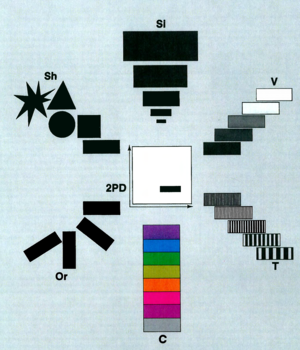Now in its tenth year, the LibLab Fellows program is an experiment in library-based learning guided by a critical consideration of just what we mean by “the digital.” Fellows engage theory and practice of digital scholarship through open lab hours and weekly discussion meetings during the fall semester and spring semester
Week 1 - September 11: Introductions, Framing & The Infrastructure of the Internet
An introduction to the terrain + the internet and its modalities. This week, we introduce the fellowship and begin by looking at what do we mean when we say internet? What makes it different from other forms of information technology and where can we find it? The internet, the idea and its physical infrastructure, permeates every hour of our days. Understanding its history and the metaphors we use to give shape to it, become a daily endevor, so as to continue to have a critical eye towards it.
Reflection: As we move from the physical to the digital. What new information is gained? What is lost? Is this even a helpful dynamic?
Readings:
- ‘As We May Think by Vannevar Bush’
- When was this article written? What does the Memex anticipate? What are other concepts still applicable today?
- Visions for the Future of the Internet
Optional:
Week 2 - September 18: Do Artifacts Have Politics? + Github
What can things do? Considering the perspective of Science and Technology Studies. Are the technologies that we will study neutral? In other words, is the saying: “it depends how you use the tool that matters” universally true or is technology inherently biased?
Readings:
- Winner, Langdon. “Do Artifacts Have Politics?” from The Whale and the Reactor (1986).
-
Biss, Eula. “Time and Distance Overcome” from Notes from No Man’s Land (2009).
- Introduction to Github + its history
-
Week 3 - September 25: Github Pages + HTML/CSS/MARKDOWN
This week we dive deeper into Github by utilizing a service that allows us to create static websites. We will also look further into how we arrive at the internet we have now.
- Abbate, Janet. “Government, Business, and the Making of the Internet
- Marx,Paris. “Reconnected: Decentralizing the internet alone won’t lift it above politics or save it from corporate co-optation
Week 4 - October 2: Metadata / Data + Collection Builder
Can data be neutral? What are the ethical considerations of collecting and analyzing data? We will also learn Collection Builder
Why don’t archivists digitize everything?
- Guest speaker: Emily Higgs Kopin, Head of Digital Collections Strategy
Week 5 - AI and the Textpocalypse
Kirschenbaum, Matthew. Prepare for the Textpocalypse
Special lecture
“10 Things I’m Not Going to Talk about in this Talk about Artificial Intelligence”
by Matthew Kirschenbaum, Distinguished University Professor, University of Maryland
When: 4:15 pm, October 9
Where : Cunniff Lecture Hall, Science Center 199
Week 6 - October 23: Maps
What are the politics of maps? How does the platform used to create and provide access to geographic information shape our understanding of space? Can you map nothing?
Week 7 - October 30: Language of Visualization + Collection Builder
Can we move beyond pleasing images representing data to and understand that visualizations are a language in themselves? In other words, rather than just understanding visualizations as representations of data can we understand them as data?
In this process, what do we gain access to and, oppositely, what is effaced or made invisible?
- Hadley Wickham. “Tidy Data <!– - Drucker, Johanna. “Graphical Approaches to the Digital Humanities.” A New Companion to Digital Humanities, edited by Susan Schreibman et al. (2016): 290–302.
- 1969 “Mother of All Demos”
- Yau, Nathan. Visualizing the Unertainty in Data
-
optional in class readingOsman, Jenna. from Motion Studies. PEN Poetry Series. November 25, 2015.–>
- Guest speaker: James Truitt, Digital Archivist
Week 8 - November 6: Accessibility
Can we democratize knowledge? How can we make information more accessible for everyone?
- Guest speakers: Jessica Brangiel, Electronic Resources Librarian & Jenn Moore, Course Content Accessibility Manager
Week 9 - November 13: Letterpress
Week 10 - November 20: Immersive Technologies
What role do emerging technologies play in higher education?
Week 11 - December 4: Surveillance and embodiment
Do we live in a survaillance culture? What are the privacy tradeoffs you make to use the tools you like? More importantly, do you know the liniage of survilance?
